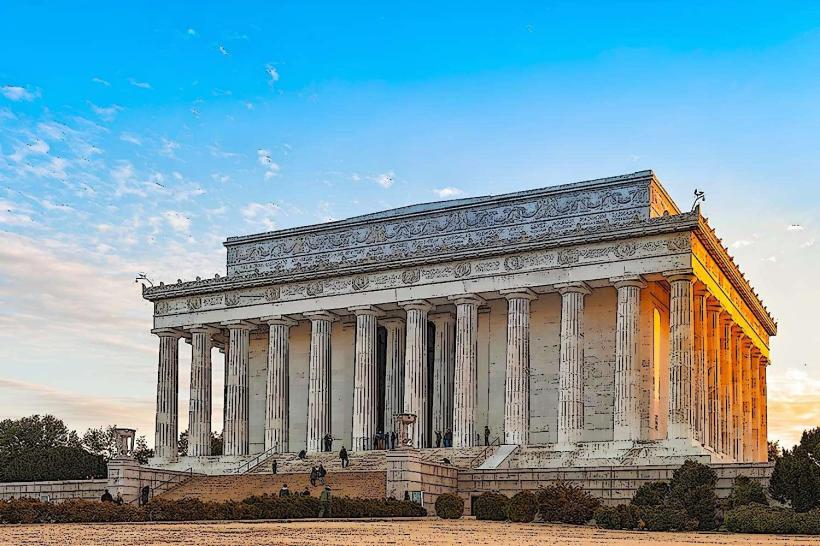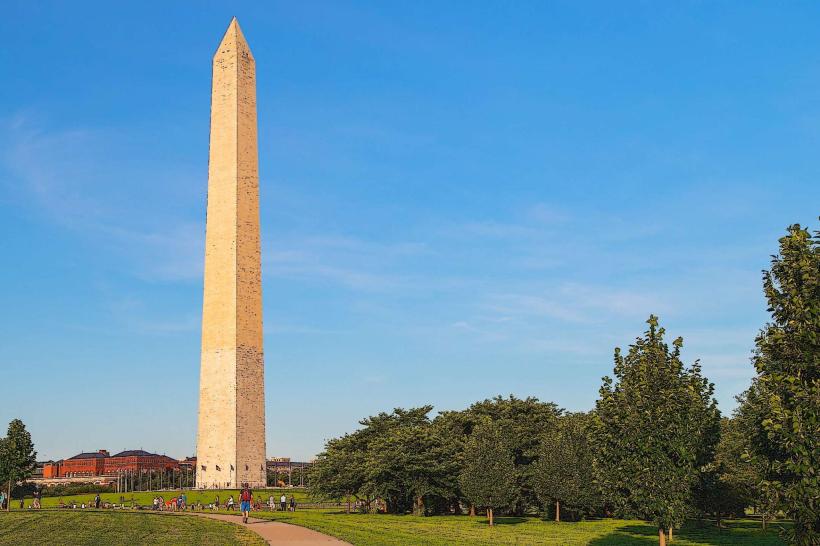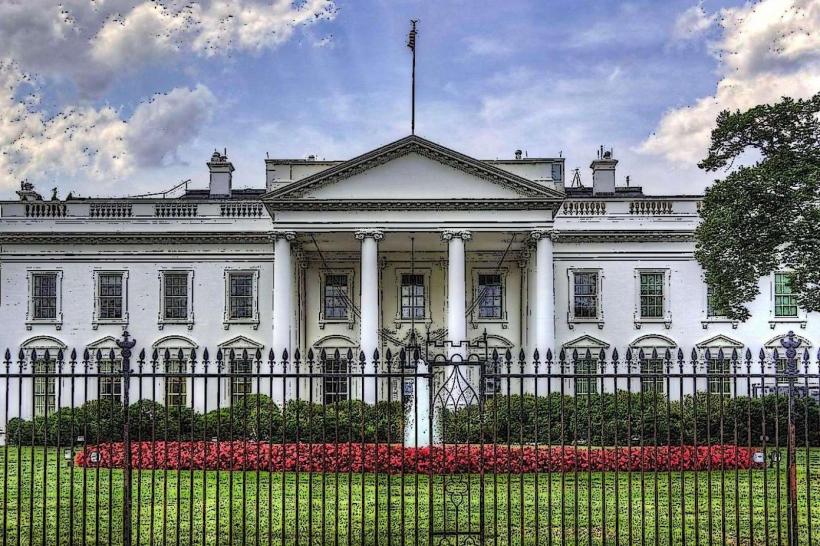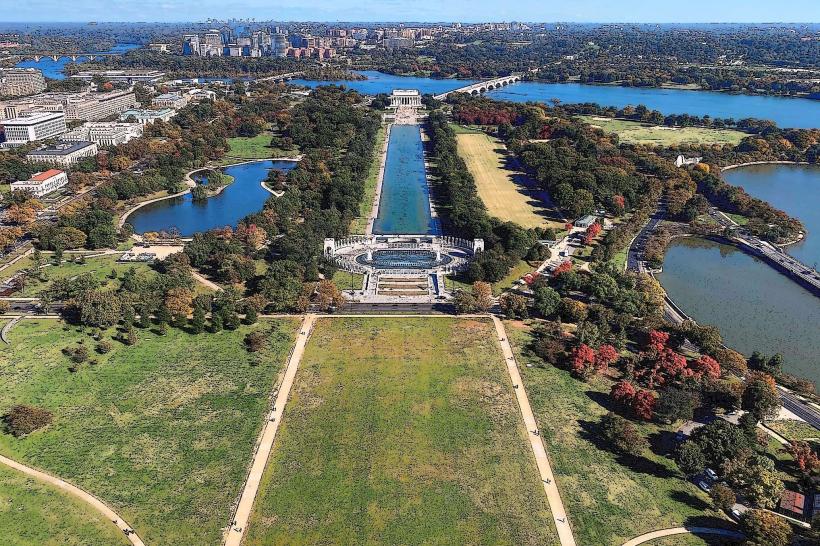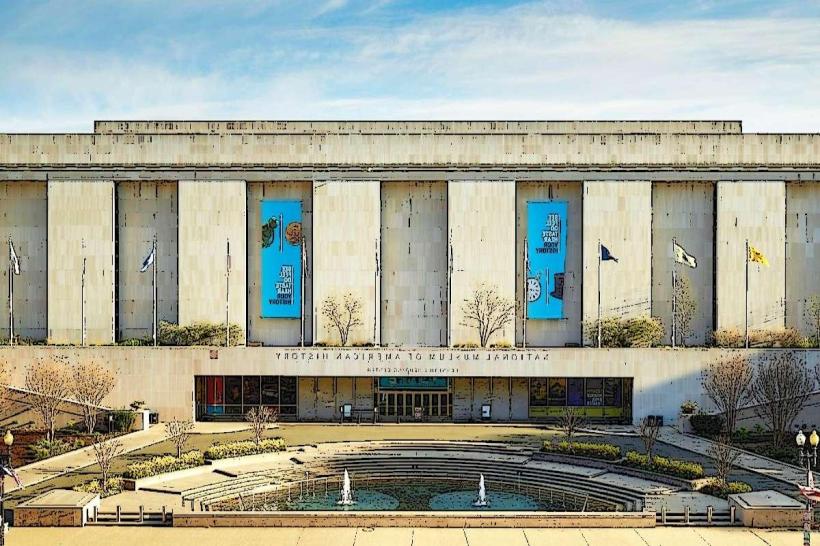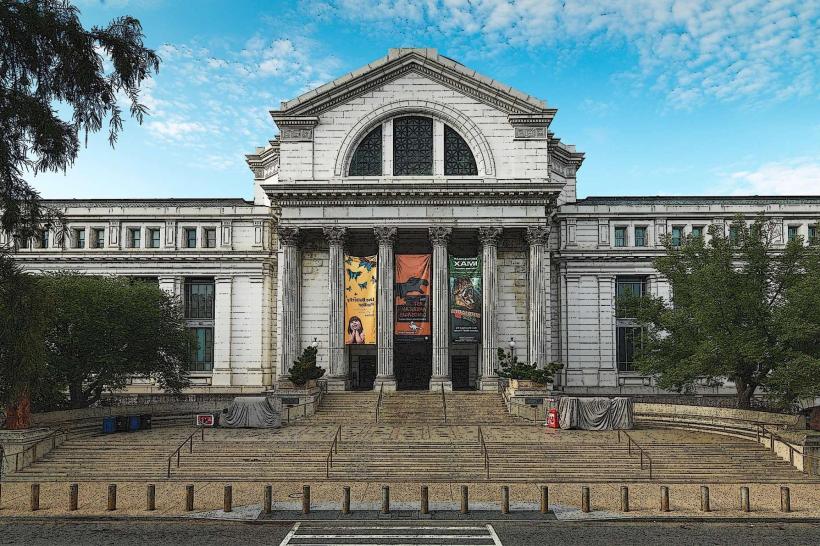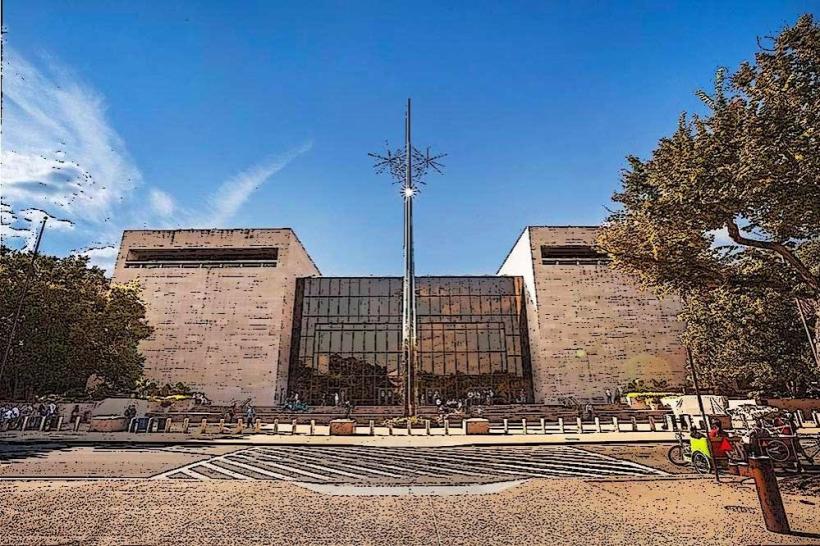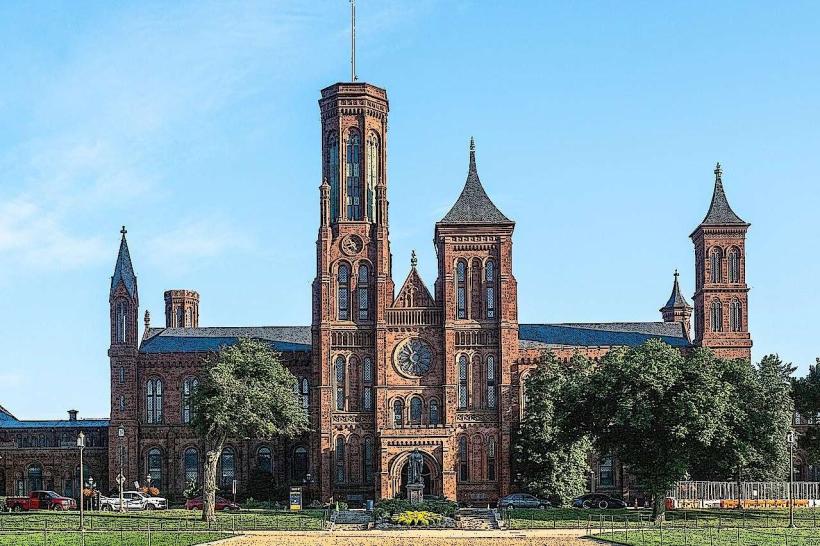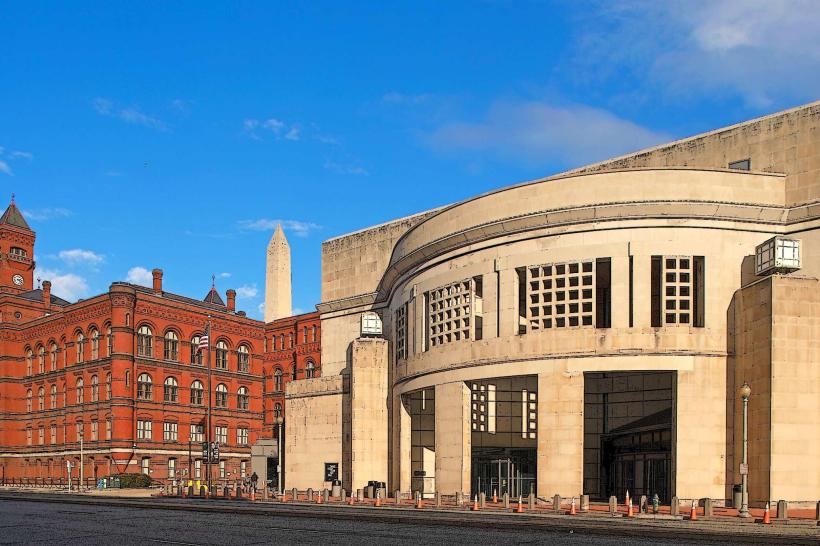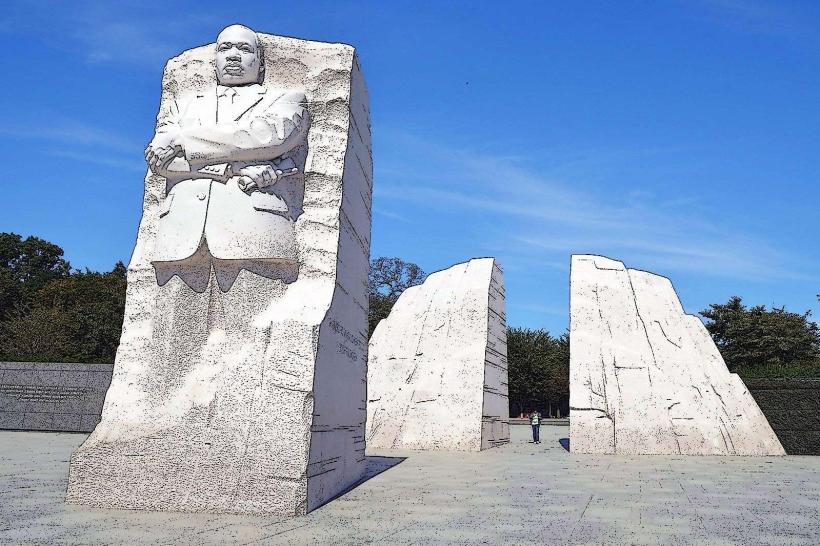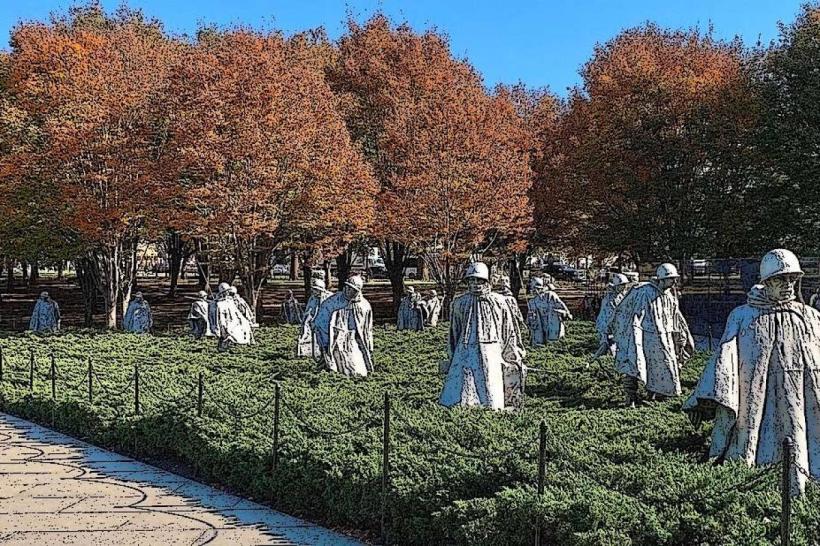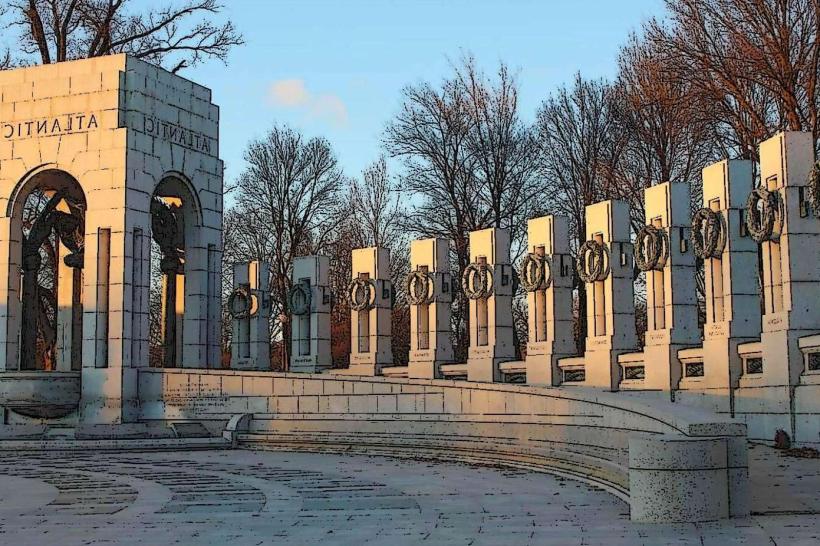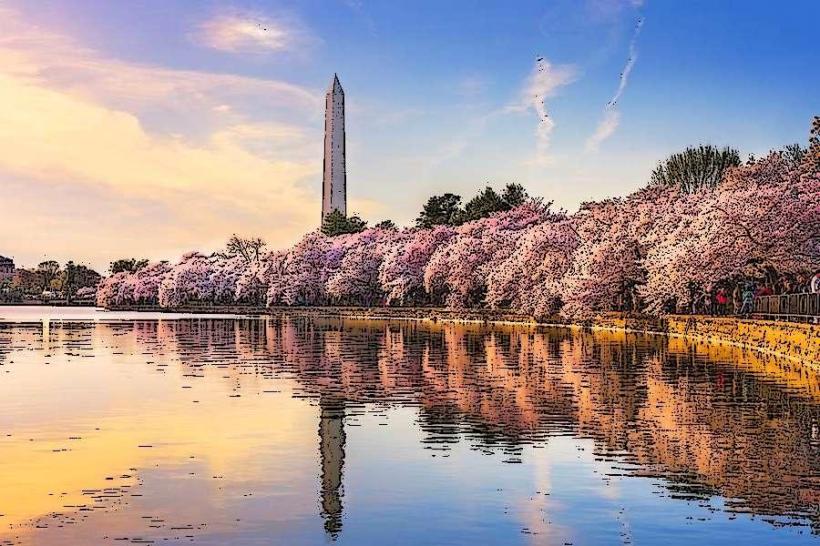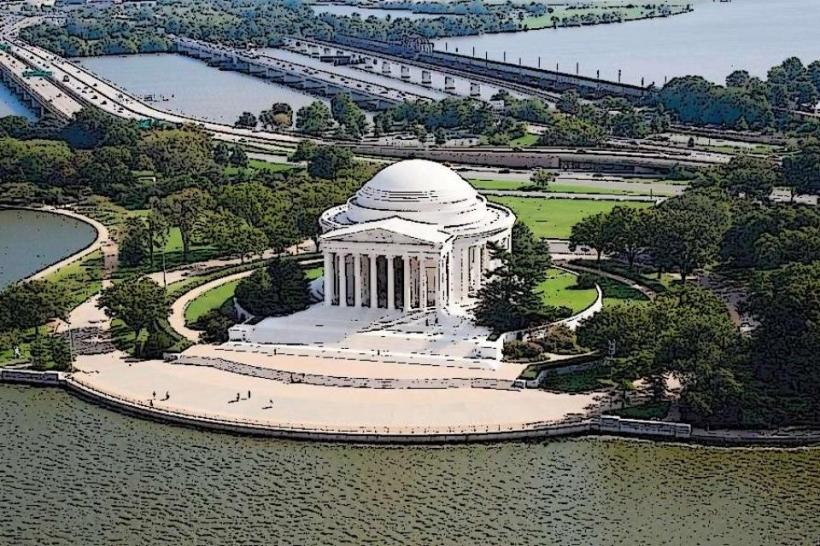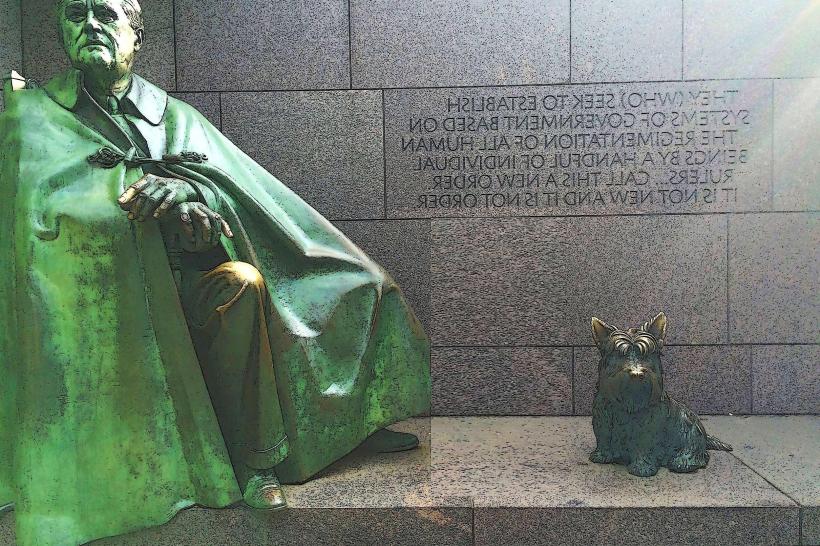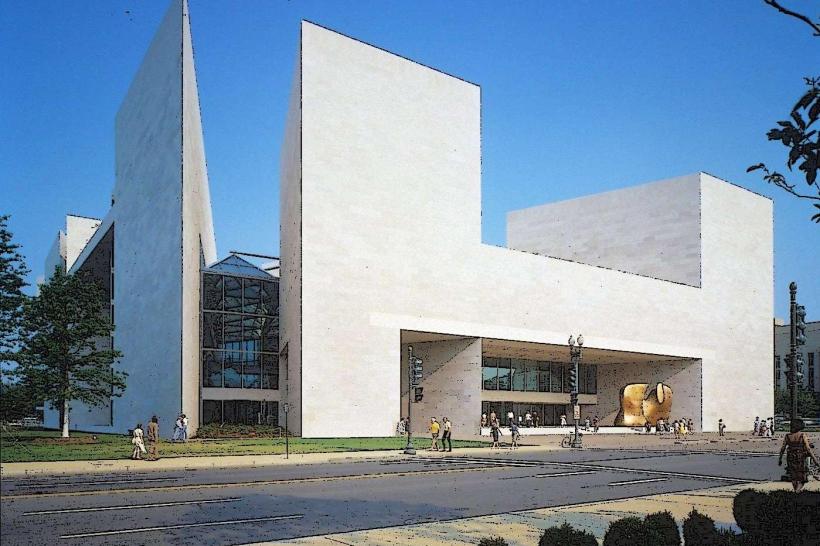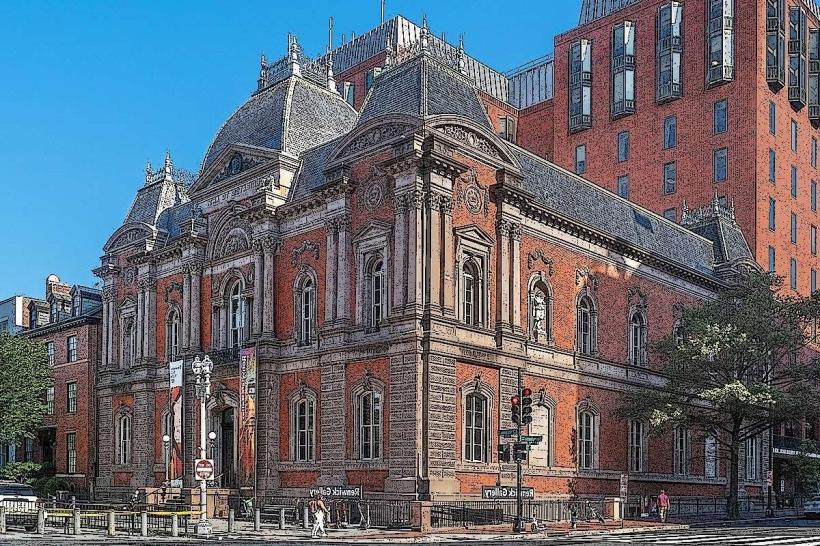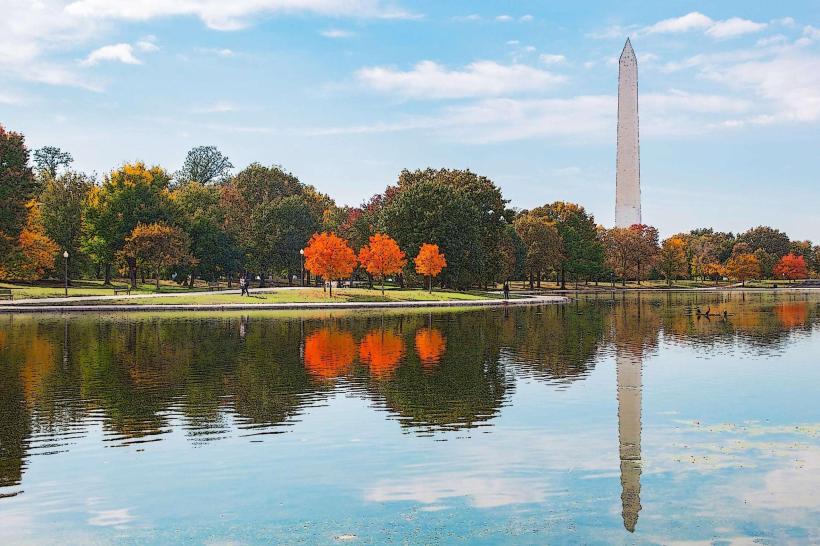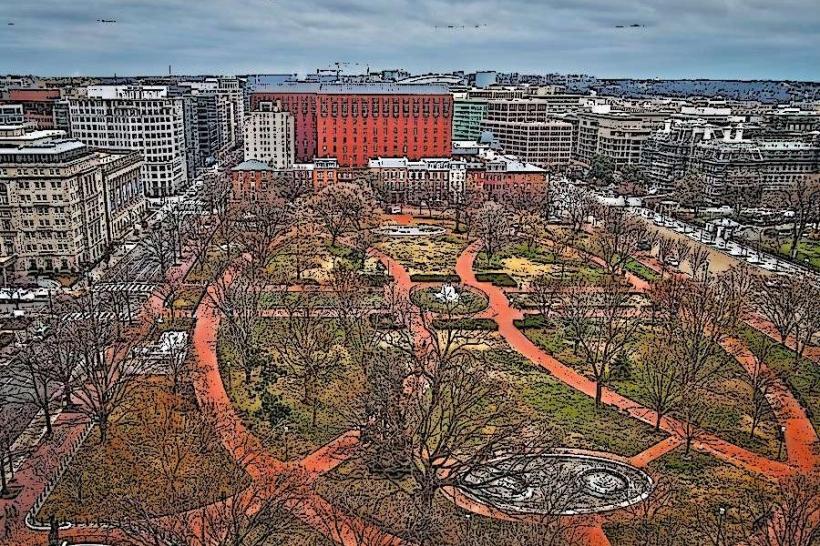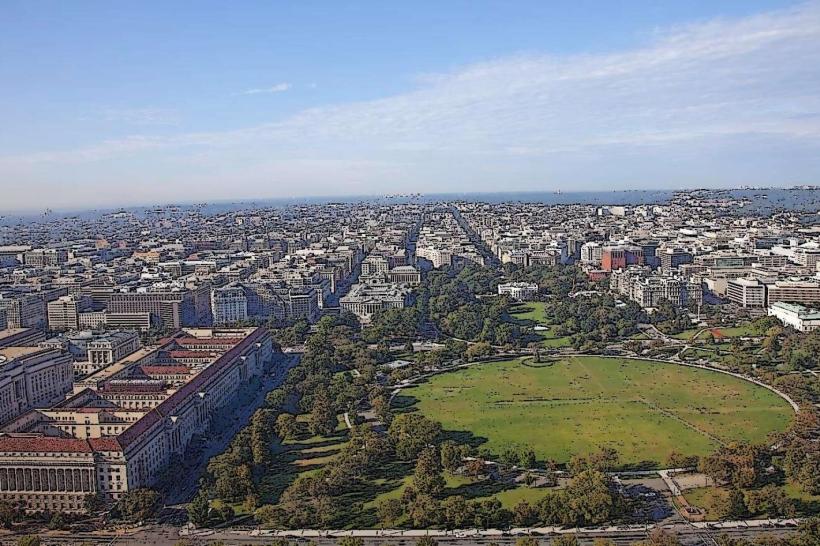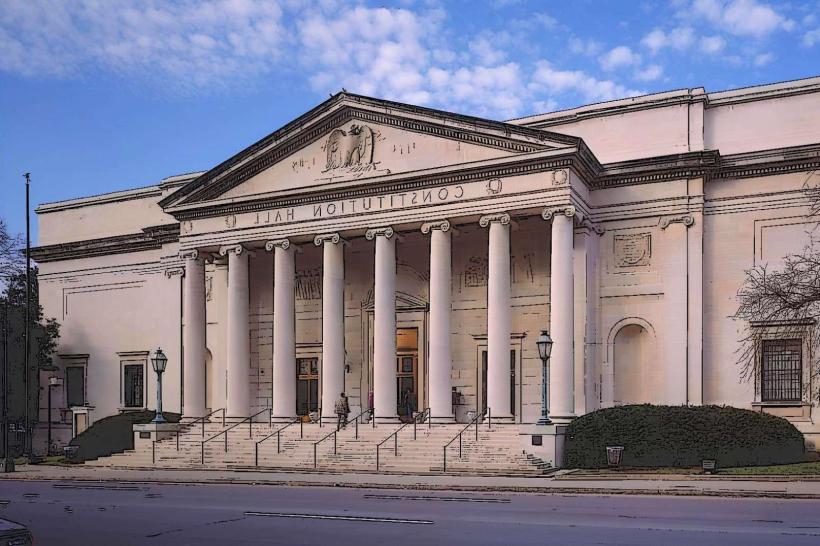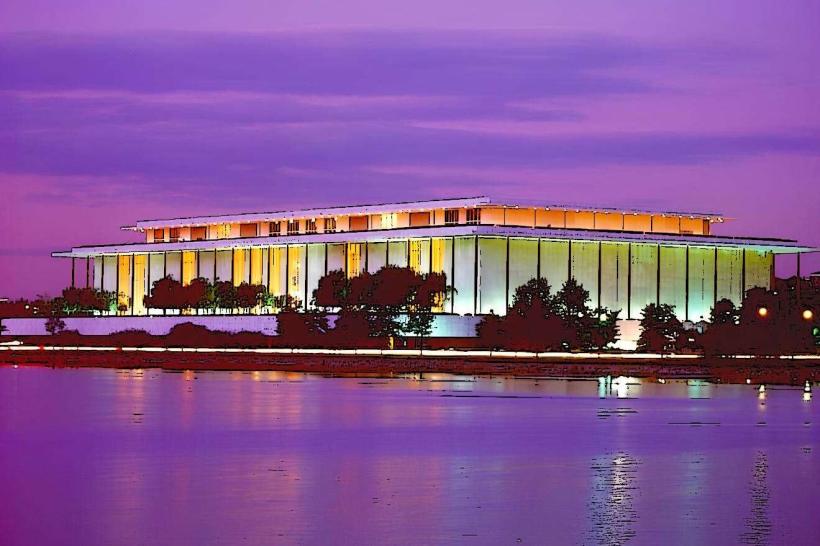Information
Landmark: National Museum of the American IndianCity: Northwest Washington
Country: USA Washington DC
Continent: North America
National Museum of the American Indian, Northwest Washington, USA Washington DC, North America
The National Museum of the American Indian (NMAI) is a distinguished Smithsonian Institution museum dedicated to the history, culture, and arts of the Indigenous peoples of the Americas. It provides an expansive platform to preserve, honor, and educate about Native American heritage from across North, Central, and South America.
Location and Architectural Overview
The museum’s primary building is located at 4th Street and Independence Avenue SW on the National Mall in Washington, D.C.
A second branch, the George Gustav Heye Center, is situated in the historic Alexander Hamilton U.S. Custom House in Lower Manhattan, New York City.
The D.C. building, opened in 2004, is renowned for its innovative design by architect Douglas Cardinal, who is of Native Canadian heritage.
The architecture reflects Indigenous philosophies and natural forms, with flowing curves, natural materials like sandstone and limestone, and earth-toned colors intended to harmonize with the landscape and evoke the shapes of rock formations, canyons, and rivers.
The building’s design emphasizes sustainability, with large windows that invite natural light and connect the interior spaces with the surrounding environment.
Mission and Significance
The museum’s mission is to foster understanding and respect for Native American cultures by showcasing their vibrant histories, traditions, and contemporary lives.
It aims to present Native perspectives in a manner that counters stereotypes and historical misrepresentations, emphasizing Indigenous voices and scholarship.
As part of the Smithsonian, NMAI serves as a cultural and educational hub dedicated to the richness and diversity of Indigenous peoples throughout the Americas.
Collections and Exhibitions
NMAI holds more than 800,000 objects, one of the largest collections of Native artifacts and cultural heritage in the world.
The collections include traditional and contemporary art, ceremonial objects, clothing, tools, baskets, jewelry, and photographs.
Exhibits explore themes such as tribal histories, spirituality, languages, cultural resilience, and contributions to broader society.
The permanent exhibit, “The People,” offers an immersive introduction to Native American cultures through storytelling, multimedia presentations, and artifacts.
Special exhibits highlight contemporary Native artists and address issues like sovereignty, environmental stewardship, and cultural revitalization.
Notable items include historic weapons, regalia, traditional crafts, and artworks created by Native peoples from diverse regions.
Educational and Community Engagement
The museum actively collaborates with Native communities, scholars, and artists to ensure accurate and respectful representation.
It offers educational programs, workshops, lectures, and cultural events designed to deepen knowledge about Native heritage and contemporary issues.
NMAI supports language preservation efforts, traditional arts, and youth leadership initiatives.
The museum’s approach emphasizes partnership with Indigenous peoples, making it a model for collaborative museum practice.
Visitor Experience
Visitors experience the museum as a journey through Native histories and cultures, enriched by interactive displays and multimedia storytelling.
The building’s interior spaces create a contemplative atmosphere with natural materials, art installations, and thoughtful spatial design.
The museum features a café that serves Indigenous-inspired cuisine and a gift shop offering Native-made arts and crafts.
Outdoor spaces include a naturalistic garden that showcases native plants and traditional landscaping methods, enhancing the connection between culture and environment.
Cultural and Historical Impact
The National Museum of the American Indian plays a vital role in preserving Indigenous heritage and educating the public on the contributions of Native peoples to the Americas.
It challenges traditional museum narratives by centering Indigenous voices and experiences.
The museum fosters greater cultural understanding, respect, and dialogue between Native and non-Native communities.
As a national institution, it underscores the ongoing significance of Native American cultures in contemporary society.
Summary
The National Museum of the American Indian is a landmark cultural institution that honors the diverse and living traditions of Indigenous peoples across the Americas. Its architecturally evocative design, expansive collections, and commitment to Indigenous perspectives make it a unique and powerful space for education and cultural celebration. By fostering respect and awareness, the museum enriches the National Mall and contributes to a more inclusive understanding of American history and identity.

